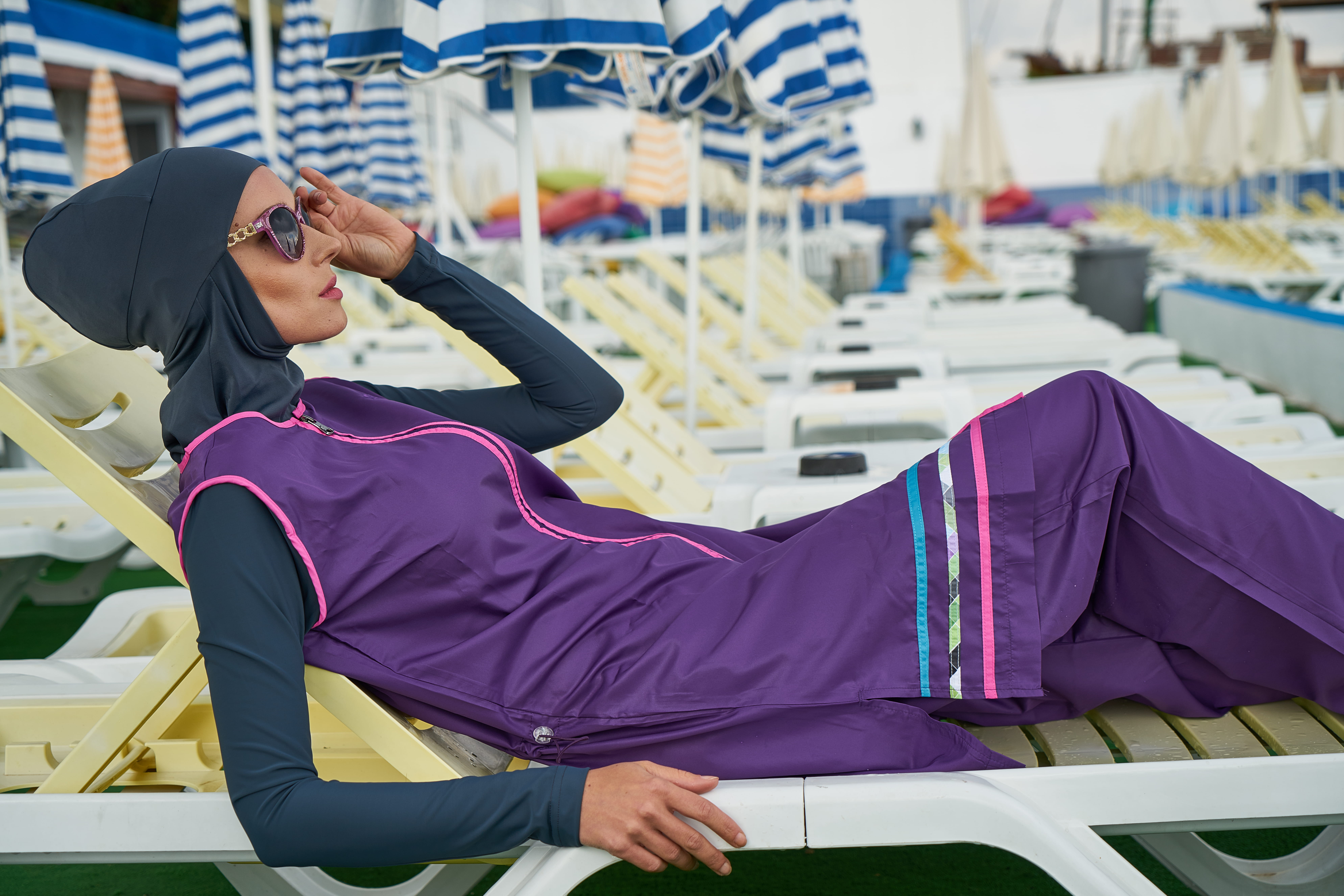
The French ecologists, who won a number of large city municipalities in the spring of 2020, thanks to an effective policy of left-wing unity, are pursuing an offensive pro-Islamic-community policy in their local bastions.
The mayor of Grenoble, Éric Piolle, at the head of a city of 160,000 inhabitants, planned to have the city council vote on Monday, May 16th, to allow women to wear the burkini in the city’s swimming pools.
The burkini is a word formed by the contraction of the terms “burqa” and “bikini,” and refers to a water suit covering the body from head to toe which allows its defenders to be able to bathe in a public place, beach, or swimming pool, while respecting the Koranic precepts on the exposure of the female body. Wearing it has been banned many times in the past, whether on the beach, in swimming pools, or in leisure centres, and has even led to fines for women who wore it.
The demand for the burkini is not new. In Grenoble, two associations have been campaigning for several years for its authorisation in the name of “freedom” and “equality:” the association Alliance Citoyenne and the Union of Muslim Women of Grenoble. The association Alliance Citoyenne even organised “events” in the city’s swimming pools, inviting women to come and bathe in burkinis, in an attempt to encourage the wearing of this garment—but without success. The two associations therefore used the “citizen interpellation device” set up by Mayor Éric Piolle in an effort to improve direct democracy to present their demands to the city council.
The Grenoble union defends maximum openness: “our allies [other women’s rights associations] would like to go to the pool topless; we, in covered swimming costumes; another person just in a top and leggings to hide, for example, burns on the thighs. All that has been swept away, and the focus is on the body-covering swimming costume [i.e., the burkini],” laments Yasmina, an activist belonging to the union.
In Rennes in Brittany, where propaganda in favour of the burkini has been particularly active, the garment has been authorised in public swimming pools since 2018. It is so far the only city in France where this is allowed. Wherever this topic is taken up, the pro-burkini arguments are quite broad and range from the most accomplished pro-Islamic militancy rhetoric to inclusive liberalism, on the grounds that “everyone does what they want,” or “it’s better for a woman to come to the pool in a burkini than to deprive herself of a pool,” according to the testimony of inhabitants of the city of Rennes interviewed by Europe 1.
The ecologist Éric Piolle is ready to put it to the vote in his city, and sees it as a militant act. In the name of freedom, he wants to authorise the wearing of the burkini, but also topless swimming, and naively hopes to see the two types of bathers cohabit in the pools of Grenoble. The fact remains, though, that not everyone can dress as they want. Swimming shorts worn by men are still forbidden—for reasons of hygiene, according to the official reason.
In an interview with the newspaper La Croix, Éric Piolle defended his project as follows: “You don’t emancipate women by imposing bans. There were the same kind of debates in France when women were granted the right to vote.” Piolle does not hesitate to compare the burkini and women’s vote in a polemical manner and sees the burkini as an instrument of their “emancipation”—which raises questions, at a time when the burqa is making an obligatory comeback in Afghanistan.
The measure is not self-evident and causes confusion within the ranks of the Left. The teacher and feminist essayist Fatiha Agag-Boudjahlat denounced Piolle’s cynicism in an interview with Le Point: she deplores the fact that the offensive of Muslim communitarians is echoed by white “bourgeois” people, who are proud to buy an inclusive conscience and to campaign noisily for contestable causes. Even Piolle’s ecologist majority in Grenoble is sceptical about the measure. According to information from Le Parisien, thirteen elected members of the mayor’s coalition are hoping to torpedo his attempt to authorise the burkini in the city’s municipal swimming pools. They want to issue a statement to protest against the measure.
The offensive goes beyond Grenoble city hall. On Sunday evening, May 15th, the prefect of the department of Isère, of which Grenoble is the capital, announced that he would ask the administrative court to cancel the authorisation of the burkini at the swimming pool if the resolution defended by Piolle were to be voted. In its press release, it contests this deliberation, “whose clear objective is to give in to religiously motivated communitarian demands.” It therefore contravenes “the principle of secularism laid down by the law of 1905 as well as the provisions of the law of 24 August 2021 reinforcing the respect of the principles of the Republic.” The so-called law on separatism, passed in the summer of 2021, allows prefects to refer to the administrative judge an act of a local authority that they consider contrary to the principles of secularism. For the time being, Éric Piolle is sidestepping the subject, considering it to be a “non-issue.”
After several hours of fierce debate, the text was finally adopted by 29 voices in favour, 27 against and 2 abstentions. President of the Rhône-Alpes region Laurent Wauquiez (Les Républicains) announced he would cut off all public funds from the region to the city of Grenoble in retaliation.
